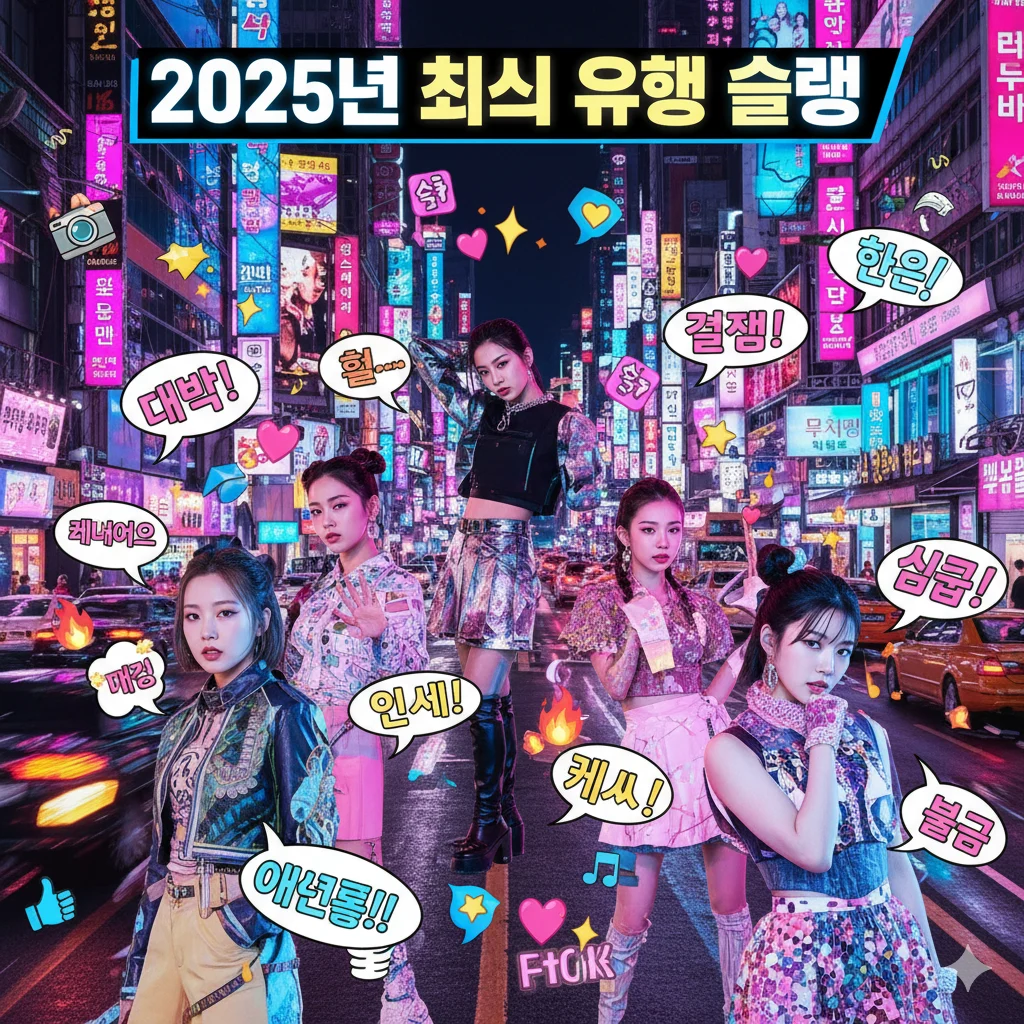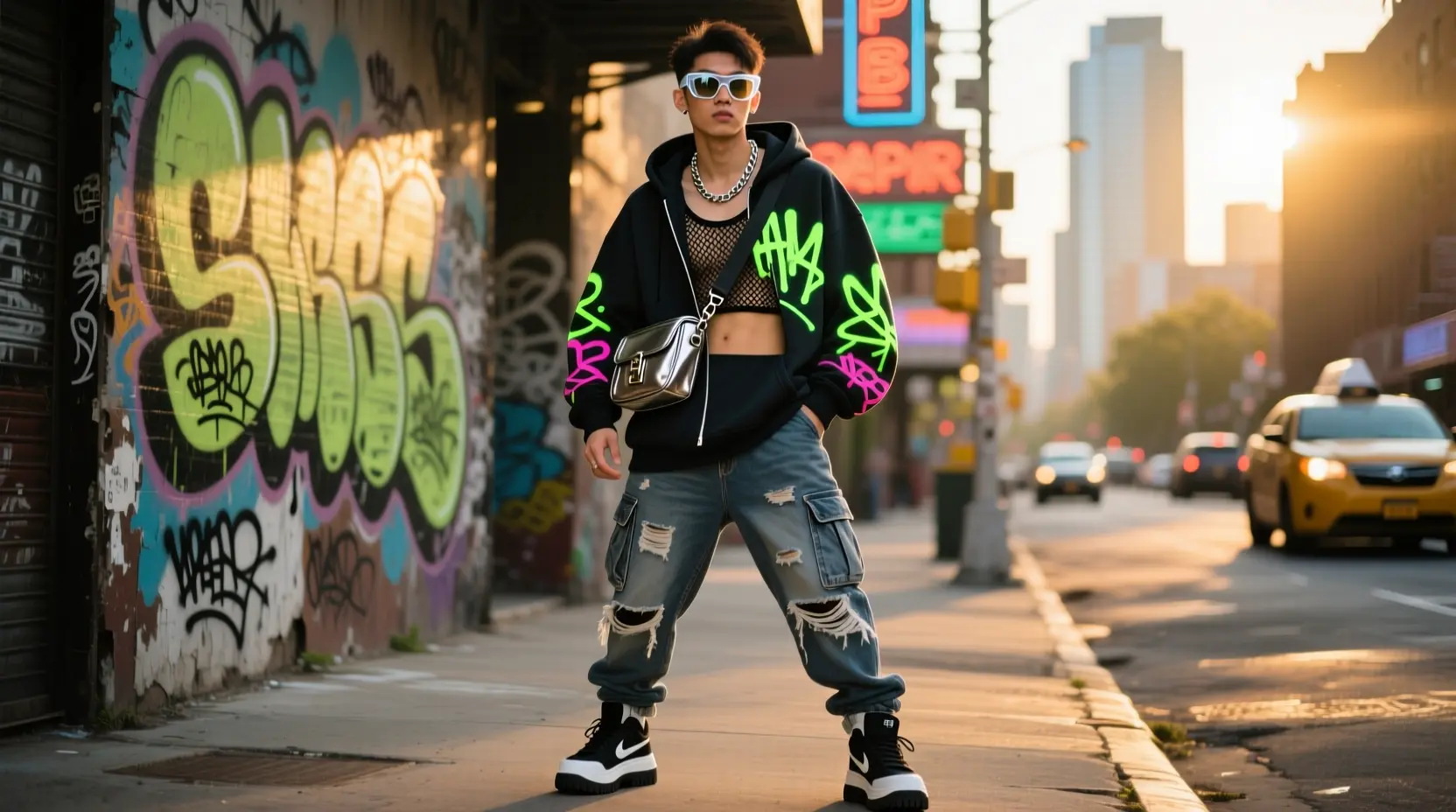If you’ve ever watched a K-drama, followed a K-pop group, or scrolled through Korean TikTok (a.k.a. TikTok Korea), you’ve probably come across slang words that left you staring at your screen thinking, “Wait, what did they just say?”
Welcome to the colorful, ever-evolving world of Korean slang — where language meets pop culture, humor meets creativity, and every word has its own flair.
Korean slang, or yuhokmal (유행말), reflects the heart of modern Korean society — youthful, expressive, and always changing. From online communities to bustling Seoul cafes, these phrases shape how people talk, joke, and connect.
Let’s explore what Korean slang really is, the most popular terms in 2025, and how you can use them like a local (without sounding like you copied straight from Google Translate 😅).
What Is Korean Slang?
Korean slang refers to informal expressions, abbreviations, and trendy words commonly used in daily conversations, especially by younger generations and online communities.
It’s like American internet slang — words such as “lit,” “sus,” or “cringe” — but with a uniquely Korean twist. These words reflect humor, emotion, and personality.
Slang is also a huge part of Korean digital culture — found in chatrooms, K-pop fandoms, memes, and YouTube comments.
For example:
- “Jjang (짱)” = awesome or cool
- “Daebak (대박)” = amazing, jackpot, unbelievable
- “Aigoo (아이구)” = an exclamation like “oh my gosh” or “geez”
Simple, right? But each word carries cultural weight, emotion, and context that make them fascinating to learn.
Top Korean Slang Words and Meanings (2025 Edition)
Let’s dive into the most popular Korean slang expressions making waves in 2025 — from K-pop fan lingo to viral TikTok trends.
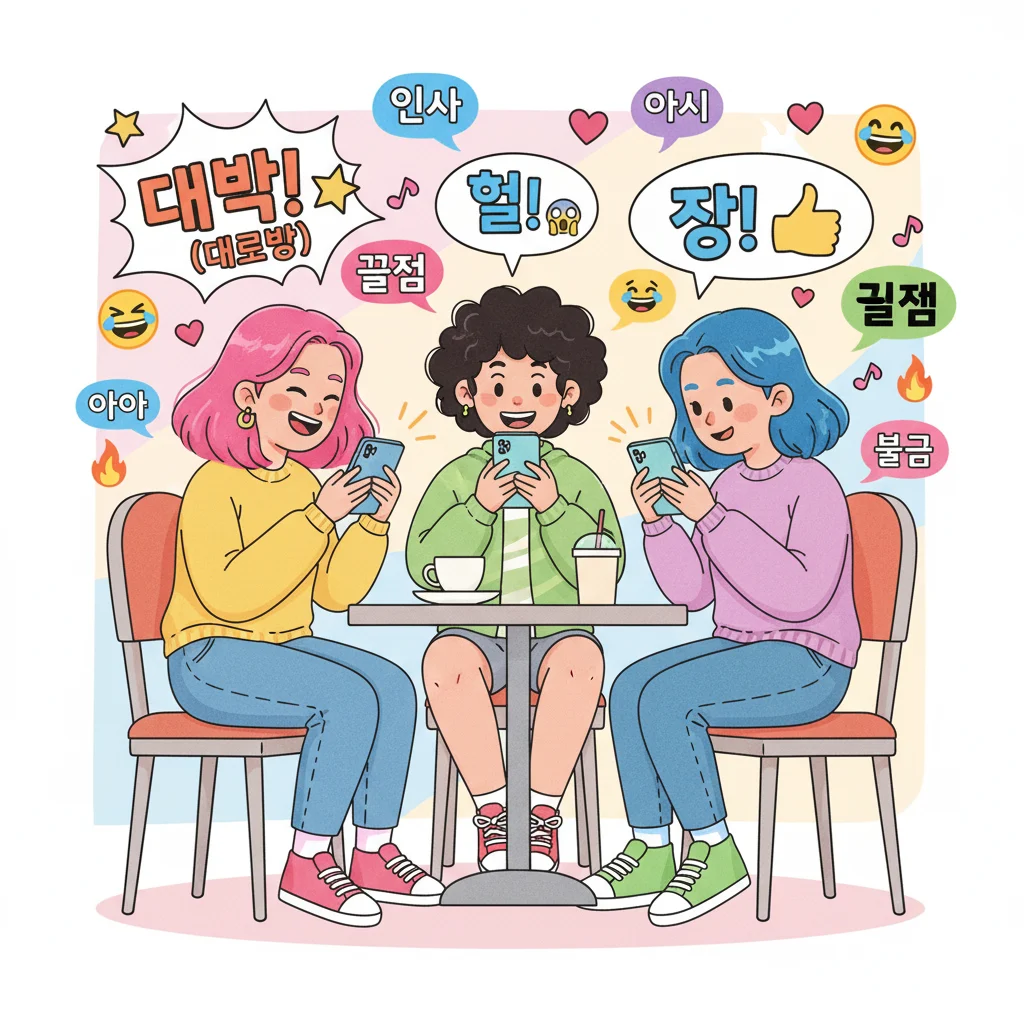
1. Jinjja (진짜)
Means “really” or “seriously.” You’ll hear this everywhere.
“Jinjja? You met Jungkook??”
2. Aespa-hae (에스파해)
A new slang trend from K-pop fans meaning “to show confidence” or “to shine like Aespa.”
3. Simkung (심쿵)
Literally “heart-thump.” Used when someone is too cute or gives you butterflies.
“That smile gave me simkung!”
4. Oemo-jjal (외모짤)
Short for oemo (appearance) + jjallang (flashy) — describing someone who looks stunningly good.
5. Meokbang (먹방)
Watching people eat delicious food online — now an international slang term thanks to YouTube.
6. Nojam (노잼)
Means “no fun.” The opposite of “jaemi-itda (재미있다)” = fun.
“This movie? Total nojam.”
7. Ppalli-ppalli (빨리빨리)
Means “hurry up!” or “faster!” — it perfectly describes the fast-paced Korean lifestyle.
8. TMI (티엠아이)
Yes, Koreans also use “TMI,” meaning “Too Much Information.” Borrowed from English slang.
9. Kingwangzzang (킹왕짱)
A mashup of “King,” “Wang (king),” and “Jjang (best).” It’s ultimate praise — “the best of the best.”
10. Sogaeting (소개팅)
Means “blind date.” Commonly used in K-dramas and dating shows.
How Korean Slang Reflects Culture
Korean slang isn’t just funny — it’s cultural storytelling.
Each slang word mirrors modern Korean society’s values: humor, speed, creativity, and connection.
For example:
- Respect meets playfulness: Even in casual speech, Korean slang maintains politeness — a reflection of hierarchical culture.
- Creativity through wordplay: Koreans love puns, abbreviations, and blended English terms (called Konglish).
- Digital influence: Platforms like Naver, KakaoTalk, and YouTube shape new slang daily.
So, learning Korean slang is like understanding Korea’s cultural heartbeat — dynamic, expressive, and always online.
Popular Korean Slang in K-Pop and K-Dramas
K-pop and K-dramas are global slang factories. Every time a K-pop idol says something cute, it becomes a meme within hours.
Some examples:
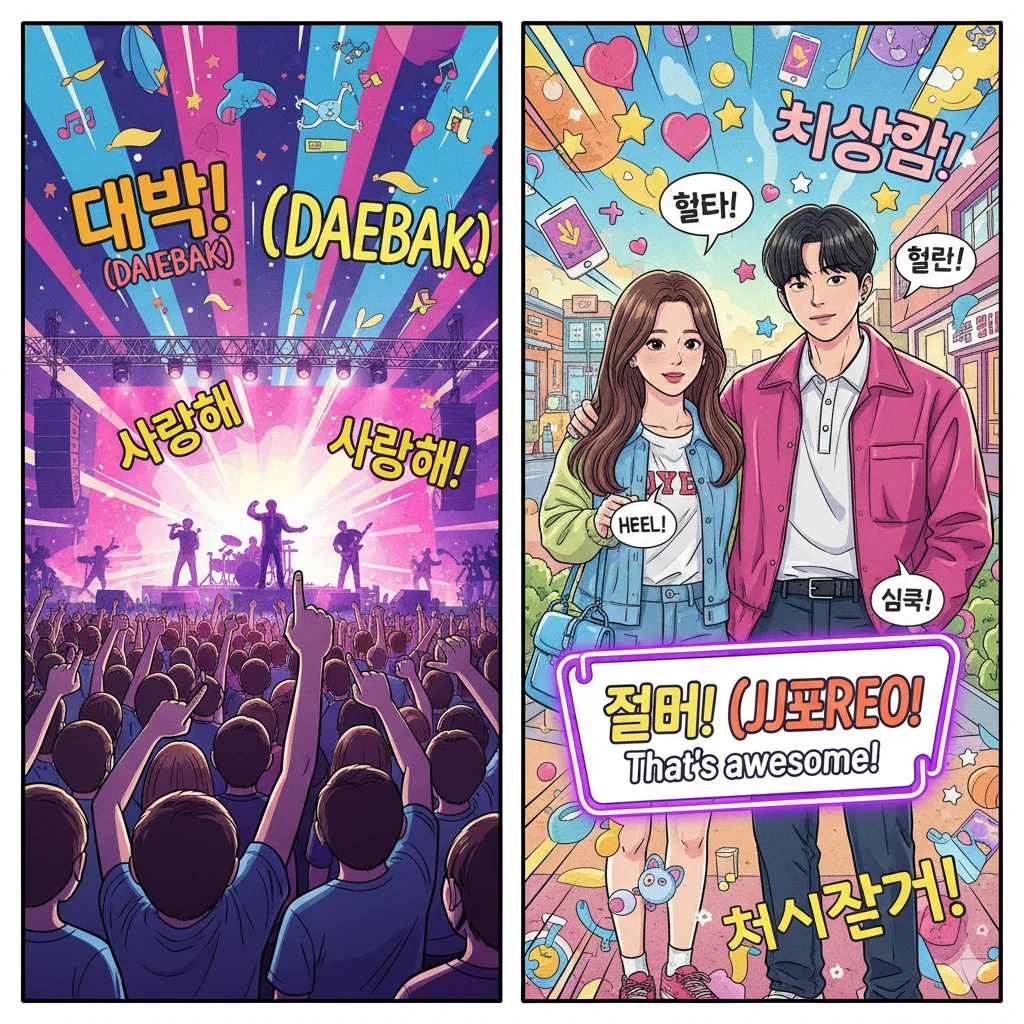
- “Borahae” (보라해) — coined by BTS’s V, means “I purple you,” symbolizing long-lasting love and trust.
- “Fighting!” (화이팅) — means “Let’s go!” or “You can do it!”
- “Oppa” (오빠) — used by women to refer to older men affectionately.
- “Maknae” (막내) — means the youngest member of a group.
Even global fans now use these words casually on Twitter and TikTok.
“Lisa is such a cool unnie 😍”
“That dance break was daebak!”
Language meets fandom — and that’s why Korean slang travels fast.
Internet and Texting Slang Koreans Actually Use
Modern Korean slang thrives online — especially in texting. Here are a few that’ll make you sound instantly fluent in internet Korean:
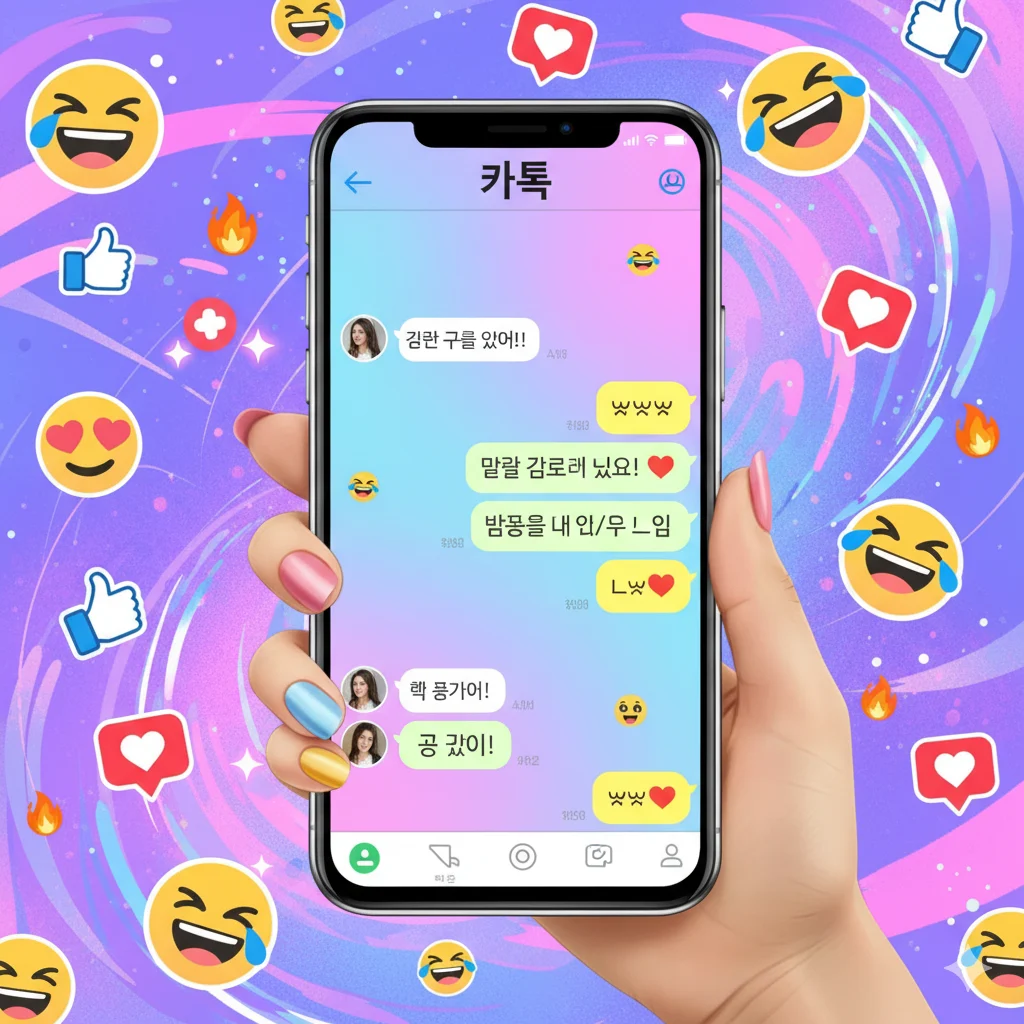
| Slang | Meaning | Example |
|---|---|---|
| ㅋㅋㅋ (kekeke) | Laughter, like “LOL” | “That meme is too funny ㅋㅋㅋ” |
| ㄱㄱ (g g) | Go go / Let’s do it | “Party tonight? ㄱㄱ” |
| ㅎㅇ (h i) | Hi | “ㅎㅇ 친구 (Hi, friend)” |
| ㄴㄴ | No no | “ㄴㄴ, not today” |
| ㄹㅇ (r e a l) | For real | “ㄹㅇ daebak!” |
| ㅇㅋ | OK | “ㅇㅋ see u there” |
| ㅂㅂ | Bye bye | “ㅂㅂ~ talk later!” |
These short forms dominate KakaoTalk, Twitter, and Instagram comments — fast, funny, and totally Gen Z.
Regional and Generational Differences in Korean Slang
Not all slang is universal.
- Older Koreans often find Gen Z slang confusing.
- Regional dialects (like Busan or Jeju) add their own flavor.
For instance:
- In Seoul, “Jjang!” means awesome.
- In Busan, they might say “Jalma!” — same idea, different vibe.
Korean slang is like music — every generation remixes it.
Why Learning Korean Slang Matters
If you love K-pop, K-dramas, or Korean culture, learning slang gives you:
- Cultural connection: You’ll understand memes, lyrics, and jokes better.
- Social fluency: You’ll sound natural chatting with Korean friends online.
- Confidence: Using slang correctly shows cultural awareness — not just language skills.
And honestly? It’s fun. Saying “daebak” just feels good.
How to Learn and Use Korean Slang Naturally
- Watch K-dramas with subtitles — listen for repeated expressions.
- Follow Korean meme pages — TikTok, YouTube, or X (Twitter).
- Engage in K-pop fandoms — fans constantly coin new terms.
- Practice on language exchange apps — but always match tone with the situation.
Pro tip: Avoid using slang in formal settings. Don’t call your boss “Oppa.” 😅
FAQs About Korean Slang
Q1: What is Korean slang?
Informal expressions used mainly by young people in Korea, often influenced by internet culture and entertainment.
Q2: Is Korean slang appropriate to use with everyone?
No — use it casually with friends, but avoid it in professional or elder conversations.
Q3: What are some famous Korean slang words?
Daebak, Jjang, Simkung, Nojam, Borahae, Fighting, and Oppa are among the most common.
Q4: Why does Korean slang change so fast?
Social media, K-pop, and streaming culture rapidly introduce new words every few months.
Q5: Can foreigners use Korean slang?
Absolutely! Just make sure you understand the meaning and tone — it’s a fun way to engage with Korean culture.
Conclusion
Korean slang is more than trendy words — it’s a reflection of Korea’s energy, humor, and identity.
From “daebak” moments to “nojam” jokes, every expression adds color to the language. And with K-pop and K-dramas spreading globally, these words have become part of international internet culture.
So the next time someone says “jinjja daebak,” smile — you’re officially part of the slang-savvy crowd. 😉

